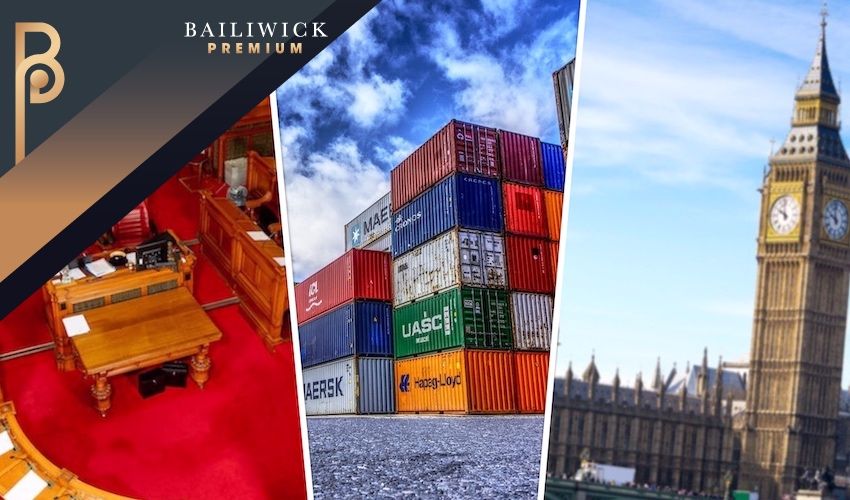


When the UK Government negotiates Free Trade Agreements with other countries, Jersey has an opportunity to take part...But how do the agreements work and what do they mean for the island?
Minister for External Relations, Senator Ian Gorst, has been working on putting together principles determining how Jersey's involvement would work.
Express simplifies the key issues around FTAs to explain what they would mean for the island...
Trade agreements set out the rules that cover trade between two or more countries.
They aim to make trading easier between those countries, by reducing the restrictions on imports and exports between them.
To date, Jersey’s trade policy has been to seek as to participate as much as possible in the UK's negotiations after leaving the European Union to ensure no opportunities for the local economy are missed.
In addition to the Brexit deal - officially known as the UK-EU Trade and Cooperation Agreement (TCA) - local officials have negotiated Jersey’s involvement in the Comprehensive Economic Partnership Agreement with Japan and the trade agreement with the three EEA EFTA States (Iceland, Liechtenstein and Norway).
When Jersey participates in the customs and goods provisions of an FTA, it gets the same advantages as the UK with the trading partner(s), which can include preferential customs tariffs, quotas, and border measures.
As the UK is both Jersey’s closest bilateral trading partner - and competitor - Jersey’s products could be at a competitive disadvantage compared to UK ones, if Jersey chose not to participate in an FTA.
Whilst there are obligations linked to FTAs, which can include measures regarding environmental standards, mobility requirements, or financial services regulatory compliance, participation ensures that current trade interests and future trading opportunities are protected and promoted.
To participate in UK FTAs, Jersey has to follow a different process than it would if it was agreeing other bilateral international agreements with partner countries.
Ministers first assess whether involvement in an FTA is advantageous for Jersey’s international identity, and consider whether the goods obligations are justified by the volume and type of trade undertaken.
The Government then has to communicate its decision to the UK Government before the FTA is signed and subsequently laid before the UK Parliament for ratification.
Jersey’s final position must be conveyed to the UK Government upon receipt of what's described as a “stable text” setting out the deal, following a formal request from the UK to confirm its inclusion.
Generally, this decision is taken around the point of ‘agreement in principle’, by which time it is expected that all parties would have a high degree of assurance on the forthcoming decision by Jersey.
There is a difficulty in the process, however.
The text of the FTA is not publicly available for scrutiny in the UK Parliament until it has been signed. At this point, it is agreed and cannot be substantively changed.
This means the States Assembly's usual Scrutiny processes don't quite fit in - instead, they need to align with ‘sight of text’ occurring at the same time as in the UK Parliament.
Before joining an FTA, Jersey must ensure it has understood the risks and benefits of getting involved.
A legal assessment must also be done to understand the island's ability to adopt any new obligations arising from the deal.
The disadvantage to the extension of UK’s trade agreements is that there is no fixed timeframe and Jersey therefore has no guarantee about when it will be able to reap the benefits.
It is also uncertain how much momentum or negotiating advantage will be available to the island in the extension process, once the formal negotiation rounds have concluded.
This may mean Jersey might struggle to have any particular interests or key asks accommodated.
To address this, the Government will seek a separate commitment from the UK and the treaty partner to facilitate the extension mechanism for Jersey swiftly, upon Jersey’s request.
Comments
Comments on this story express the views of the commentator only, not Bailiwick Publishing. We are unable to guarantee the accuracy of any of those comments.